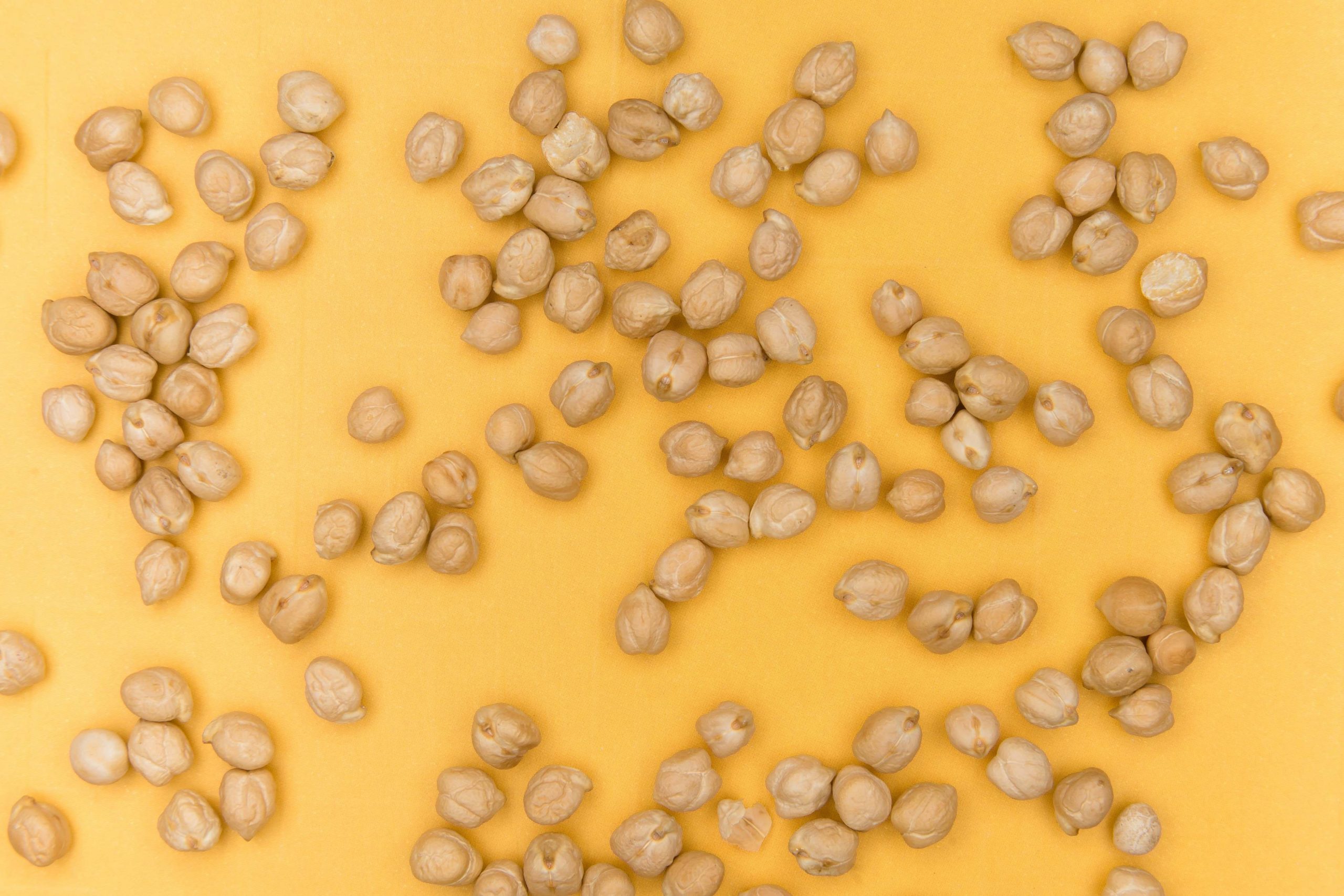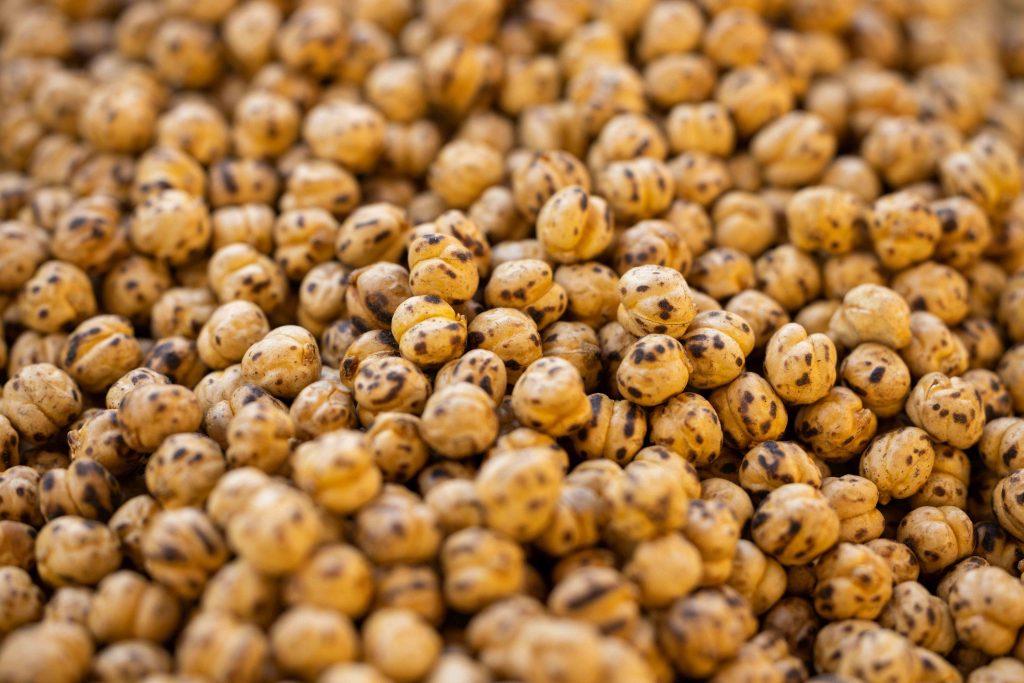
Produce chickpea snacks as a healthy snack alternative
About
The original idea for our company came from my nutritional science degree. As a passionate food blogger with a strong interest in healthy eating, I asked myself how to make healthy eating fun and easy. At the same time, I heard a lot about pulses during my studies and realised that pulses are still totally underrepresented as a plant group in the classic products you find in the supermarket. That was about 7 years ago, a completely different time - hummus, for example, was only just emerging. At that time, we were one of the first to start turning pulses into snacks to make them more accessible as an extremely healthy plant group and at the same time offer a tasty, healthy snack. After founding the company in 2019, we initially focussed on achieving our proof of market by testing whether our product was accepted on the market at all. Within six months, we gained enough customers that our first production facility became too small and we had to relocate. Our production continued to grow and we constantly had to maintain a balance between sales and production, only acquiring as many customers as we could serve. At the same time, of course, we also wanted to grow and not turn anyone down - that was the biggest challenge in the first three years. We then moved back into our current production hall, which is built in such a way that it will be sufficient for us for a long time to come. Our focus is on customer acquisition, and this year we are also starting to expand our brand in order to be more present at trade fairs and events. Our employees are mainly involved in production and are gradually taking on more responsibility. Initially, the founders were responsible for logistics and all order processing, but this is now gradually being transferred to the team. The founders are thus becoming managing directors and concentrating on their core tasks.

Sustainable Development
It is not easy to answer this question as I do not have a clear definition of sustainability. My personal view is probably rather vague and broad. For me, everything is sustainable if my actions today have a positive impact on my future or are designed to be meaningful in the long term. I endeavor to ensure that what I do today not only works in the short term, but will still make sense in 10 years. This applies to various areas, starting with our products. My background as a nutritionist directs my focus towards the nutritional aspect, which I consider to be sustainable. Our products are healthy and they are just as great for the human body today as they will be in 10 years.
Sustainability Impact
I believe that from the very beginning, we have put a lot of our heart, passion and personal conviction into sustainability. We live these values not only in business, but also in our personal lives. Nevertheless, we know that there are still areas in which we can continue to improve. We then consciously consider these aspects and reflect on them. To summarise, I would say that there are many aspects of sustainability that we unconsciously integrate into our actions. For us at Hülsenreich, sustainability means that everything we do and the products we put on the market should not only be beneficial to people's health, but also have a positive impact on the environment and this in the long term.
SDGs goals and Sustainable development strategy
Goal 1. No Poverty: In my opinion, what sets us apart is that our production work is a catchment area for very diverse people. It's not just working students from privileged households who work for us, but a very mixed bunch, consisting of Ukrainian refugees, for example, or people who haven't had a job for a while. We are an open team. The production work also makes this possible, as the tasks can be learnt quickly, so we don't exclude anyone. On a global level, we have supplier screening, so we make sure that everything is sound. The chocolate we use is Fair Trade, but we don't yet manage to trace everything right through to the end of the supply chain, so we rely on the information provided by the suppliers. We are a certified organic company. It is not guaranteed that certified organic suppliers automatically take social aspects into account. Nevertheless, it is often the case that the organic sector not only emphasises quality, but also social interaction and fair conditions.
Goal 2. Zero Hunger: I think this is probably one of our subconscious core sustainability goals. This is particularly evident in the fact that we produce high-quality, nutritious food that is also sourced regionally. This is part of our DNA, so to speak. We are also actively committed to chickpea cultivation in Germany, with an eye to the future. In view of advancing climate change and other developments in agriculture, it is already foreseeable that conventional main raw materials such as wheat or maize will face challenges. Agriculture must diversify and start growing niche crops now. This is not only important for the security of food and raw material supplies, but also for soil conservation. We are actively engaged in dialogue with farmers and other processors and regularly take part in panel discussions and network meetings to explore opportunities. We have even carried out a test cultivation with a farmer in Saxony-Anhalt and are already sourcing German chickpeas, which we do not yet process but offer as raw goods in our online shop. This is an issue close to our hearts, as chickpeas and pulses in general can play an important role in the future of agriculture and soil conservation.
Goal 3. Good Health and Well-Being: Once a year, we undergo an inspection by an expert from the employers' liability insurance association (in german: Berufsgenossenschaft BGN). This expert inspects the production facility with regard to occupational safety and also checks whether the workstations meet the standards from an ergonomic point of view. This inspection is a voluntary measure. Through the BGN, we also organise an annual back workshop in which our employees learn how to improve their back health. In addition, we provide our employees with fresh juices, fruit and our healthy chickpea snacks free of charge and in unlimited quantities.
Goal 5. Gender Equality: As a small company, we are extremely flexible when it comes to adapting working conditions. It is clear that there are shifts in production, so production employees are bound to these. For all other tasks and positions, however, we offer the option of working from home. We have already supported an employee in production who became pregnant but wanted to continue working for us until her maternity leave. We successfully found alternative tasks for her, which she was able to carry out until shortly before the birth. After the birth, we adjusted her shifts so that she could take her child to and from daycare. Our small size allows us to react flexibly to situations like this. Gender is completely irrelevant when it comes to assigning tasks and salary.
Goal 8. Decent Work and Economic Growth: We have already discussed how we deal with our employees and suppliers elsewhere. I would like to emphasize one more thing that probably sets us apart from other start-ups: We are not planning to sell our start-up to the highest bidder within the next few years, but we want to build a company that will be around for the long term. Of course, this also influences how we operate.
Goal 13. Climate Action: By promoting pulses in general, with the aim of increasing the circulation and cultivation of pulses, we are making a contribution to climate protection. These efforts aim to ensure that pulses increasingly replace animal products, which has a positive impact on the climate.
Goal 17. Partnerships for the Goals: We are active in various networks, including a network of representatives from the niche market for pulses, which covers the entire value chain from growers to processors. Another network consists of sustainably-minded start-ups that focus on mutual support and cooperation. There are increasing opportunities for cooperation here, which we see as a goal for this year. A third aspect of our network relates to our main investor, who is himself active in food production and agriculture. This partner is extremely valuable to us, as we can learn from their experience and also utilise their agricultural produce. The result is a win-win situation that benefits both sides.
Strategy & Mission
We do not have a formulated sustainability strategy, but we are pursuing various sustainability goals on a subconscious level. Our sustainable behaviour tends to happen on an intuitive basis. As our company becomes more complex, we need to document, record and anchor processes more intensively. I also observe this in other areas, especially when tasks are delegated and structures become more complex. In such cases, it is time to record the processes in writing. This approach can also be applied to the topic of sustainability. At the moment, our small team operates intuitively and in a common direction. However, as the structures continue to grow, we will probably move towards putting our starting points, our core identity and our principles in writing. This will ensure that everyone in the company is on board and that the sustainable principles can be communicated clearly and consistently.
Innovative approaches &Challenges
Employee satisfaction and safety are very important to us. Our production hall is currently not heated, which is beneficial for our electricity and energy consumption, but poses a challenge for our employees. We currently use infrared radiators and heated shoe soles to create a pleasant working environment. In the long term, however, it is necessary to find a solution that both increases the comfort of our employees and is energy-efficient. Heating a large production hall is not an ideal option for us as a manufacturing company for cost and energy reasons. We are therefore endeavouring to find an innovative and sustainable solution to improve our employees' working environment in the long term.